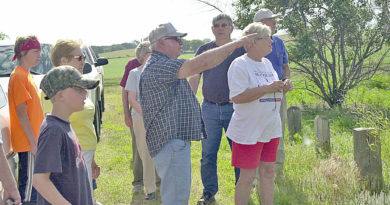Ten Things That Leaders Should Say
By Phyllis Schoenholz, Extension Educator
UN-L Cooperative Extension in Southern Plains Unit
In a blog, Sheryl Nance-Nash wrote that as a business owner, you are also a leader. How you run your business, shows the leadership skills you exhibit and using the right words at the right time will increase the odds of your business becoming successful. Sheryl suggests that you consider saying:
1. “What do you think?” Many times, leaders often fail to listen. Remind yourself to listen to the other person’s point of view first. When you sincerely ask people for their input, they’re more likely to support a given suggestion — even if it’s not the one they prefer. It also leads to better decision making on your part as the business owner.
2. “No.” As a leader, you are the final judge of your company’s values and reputation. You should have only one response to suggestions or actions that violate (or appear to violate) values or general business ethics.
3. “Tell me more.” Successful leaders are inquisitive. Being open to all feedback creates a culture of healthy discussion, feedback, and innovation. It may not be what you want to hear, but you should be open to all opinions to help make good decisions.
4. “Here’s why…” Getting people to agree with your decisions or request to complete certain tasks often is less about the decision or request. Providing the reason why you want something done can be very powerful and can lead to “buy-in” from others.
5. “We’re a team.” The best leaders are collaborators and team builders. Nance-Nash writes, “It takes a community of dedicated people to deliver consistent winning results. Highly effective leaders don’t hog the limelight, but instead, speak about the team and the company.”
6. “This is our goal.” Your employees or members help drive your business or organization toward success, but if they don’t know the intended destination, it will be much more challenging for them to get there.
7. “I’m sorry.” They say confession is good for the soul. It’s healthy in the workplace, too. If you’ve made a mistake, say so.
8. “I don’t know.” Everybody has strengths and weaknesses. Saying, ‘I don’t know,’ provides confirmation that we may not know all answers, but we can tell people we are willing to find out the information. This can build trust in you.
9. “Why?” Why do people think something will work or won’t work? Asking “why” gets ideas and conversation flowing and may help guide all team members to go in the same direction.
10. “Thank you.” People like to be appreciated. Giving thanks is one of the best and easiest ways to show your appreciation. Recognizing others’ efforts and contributions is a critical leadership skill. “


